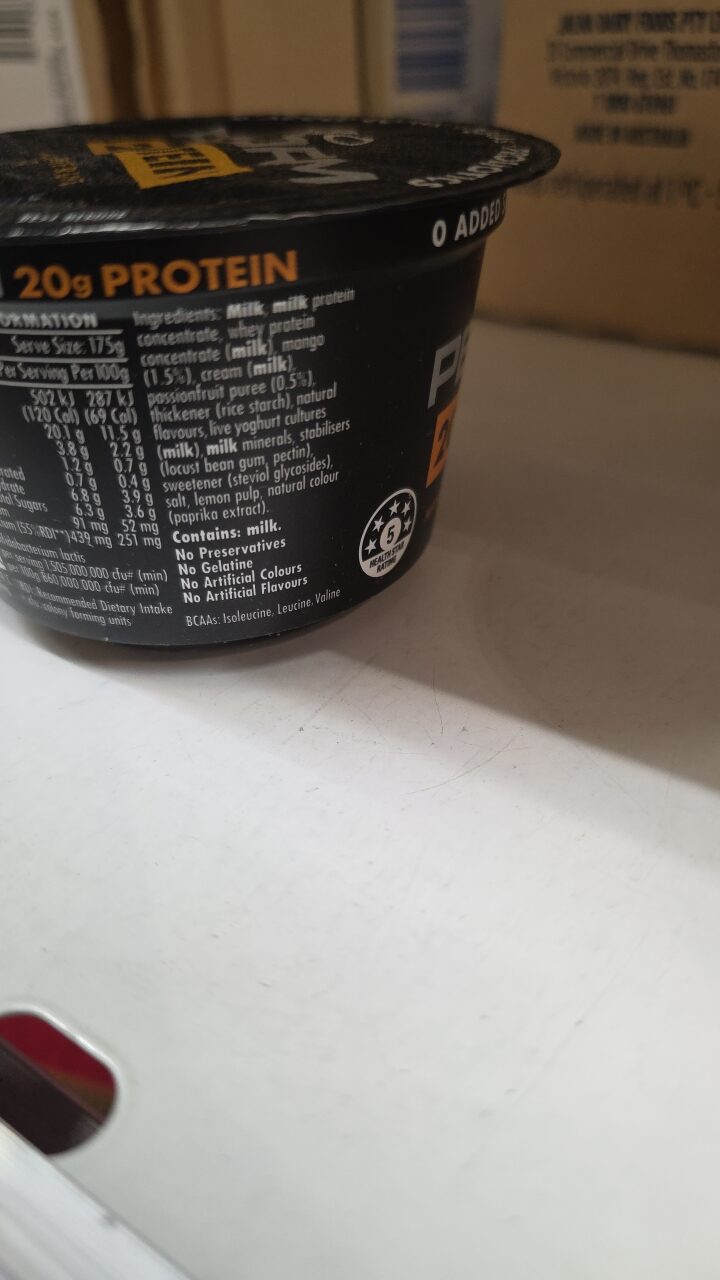
Barcode: 9344962003855
20g PROTEIN
HALAL
📝 Reason: Based on the list of ingredients and the strict halal rules provided, several components like natural flavours, stabilisers, sweetener, natural colour, and BCAAs (including isoleucine, leucine, valine) have doubtful status due to ambiguous or potentially non-halal origins. Islamic rulings (Quran 5:3) prohibit consumption of haram or doubtful foods, unless halal status is confirmed. Always seek certified halal sources when origins are unclear. Reference: IFANCA, Halal Food Authority, Quran 5:3.
🏷️ Category: Dairy, Protein Shake
📄 Certificates: 0 Added, 5 Stars, Vegetarisch
Ingredients:
Details
Understanding the Halal Status of 20g PROTEIN
Are you looking to know the halal status of 20g PROTEIN? This protein shake, common in the dairy and protein shake category, claims to be halal. However, let’s delve deeper to understand its ingredients and their sourcing more clearly.
Analyzing the Ingredients
The ingredients for 20g PROTEIN include:
- Milk
- Milk protein concentrate
- Whey protein concentrate
- Mango
- Passionfruit puree
- Cream
- Rice starch
- Natural flavours
- Live yoghurt cultures
- Milk minerals
- Stabilisers
- Locust bean gum
- Pectin
- Sweetener
- Steviol glycosides
- Salt
- Lemon pulp
- Natural colour
- Paprika extract
- BCAAs (Branched Chain Amino Acids)
- Isoleucine
- Leucine
- Valine
Halal Status Breakdown
Confirmed Halal Ingredients
- Milk: Halal if from cows with no haram additives. (Source)
- Milk Protein Concentrate: Derived from cow’s milk, making it halal. (Source)
- Whey Protein Concentrate: Typically halal if no animal rennet is involved. Most whey is sourced from microbial means. (Source)
- Mango: A natural fruit ingredient, inherently halal. (Source)
- Passionfruit Puree: Another fruit product that’s naturally halal. (Source)
- Cream: Derived from cow’s milk, thus halal if free from non-halal additives. (Source)
- Rice Starch: Halal, derived from rice. (Source)
- Live Yoghurt Cultures: Typically non-animal bacteria, hence halal. (Source)
- Milk Minerals: These minerals are halal as long as the milk source is halal. (Source)
- Locust Bean Gum: Plant-derived and considered halal. (Source)
- Pectin: Plant-based (usually from citrus) and halal. (Source)
- Salt: A mineral that is halal by nature. (Source)
- Lemon Pulp: Another plant-derived ingredient, thus halal. (Source)
- Paprika Extract: Plant-derived and halal. (Source)
Questionable Halal Status
- Natural Flavours: The origin of these flavours is ambiguous, possibly from either plant, animal, or other sources, leading to a doubtful halal status. (Source)
- Stabilisers: Often mixed additives which can include animal or synthetic origins. Their halal status is uncertain without specific certification. (Source)
- Sweetener: The source is unspecified, causing potential halal concerns depending on its type. (Source)
- Natural Colour: Origin can be plant, mineral, or animal. Without clear sourcing, halal status remains in question. (Source)
- BCAAs, Isoleucine, Leucine, Valine: These may come from animal derivations or be synthesized, leading to a doubtful halal status commonly needing certification. (Source)
Conclusion
In conclusion, while 20g PROTEIN boasts a halal designation, several ingredients present ambiguity regarding their halal status. Islamic teachings emphasize the need to confirm and verify the halal nature of all consumables in accordance with the teachings of the Quran (5:3). Therefore, consumers are advised to seek out certified halal sources, particularly when ingredients are questionable. Always refer to reliable certifications and guidelines from bodies like IFANCA and the Halal Food Authority.
